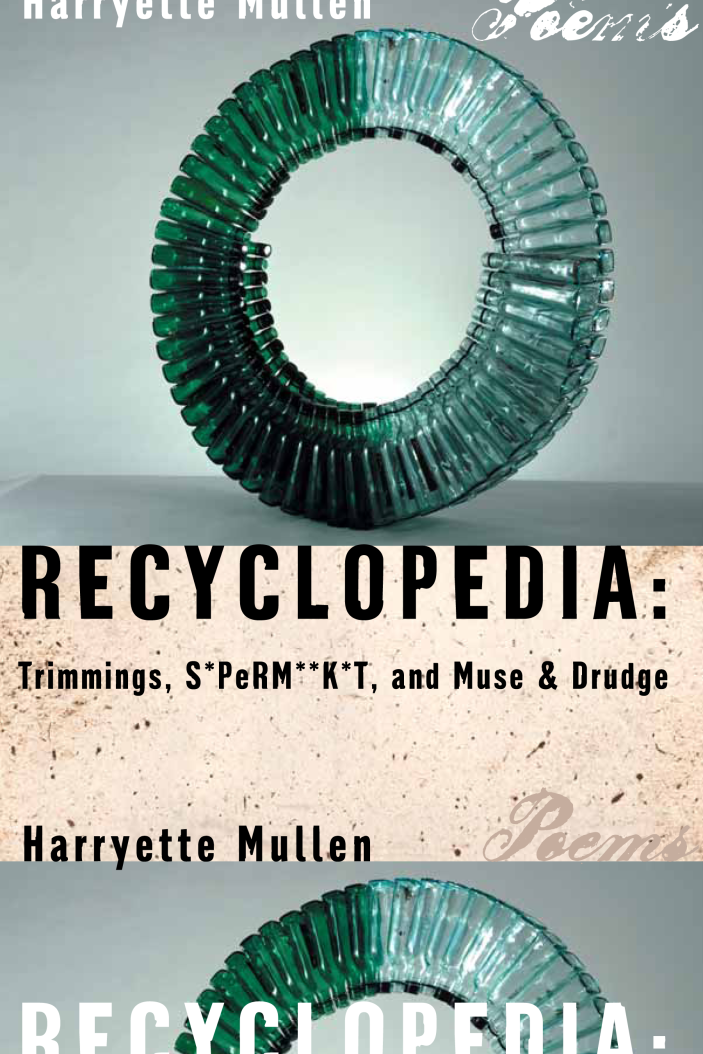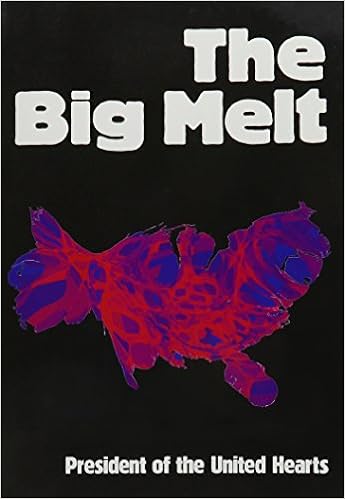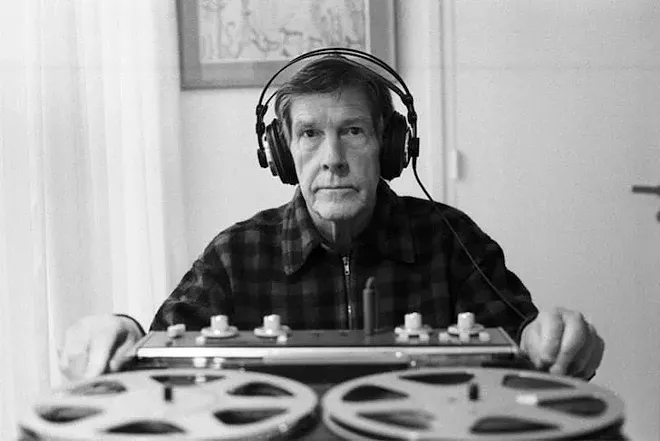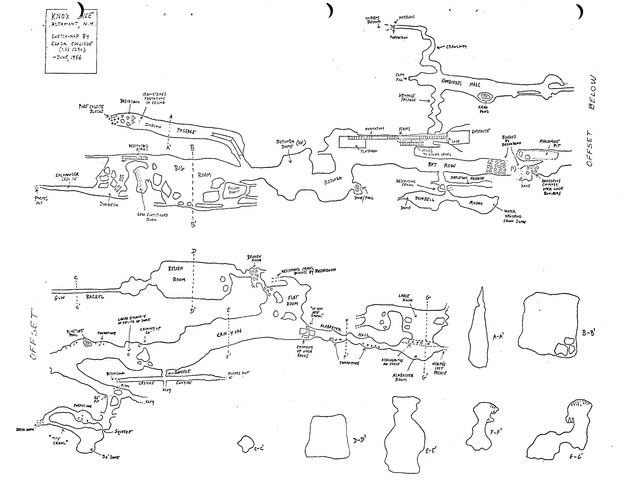PennSound Daily (original) (raw)
PoemTalk #140: on Barbara Guest's "The Blue Stairs"
Filreis offers some vital background info on the poem in his PoemTalk blog post on the episode: "'The Blue Stairs' was inspired by a stairway in the Stedelijk Museum of Modern Art in Amsterdam, and yet, the group agrees, the poem is not really about those stairs — nor, really, any known sort of stairs other than what one could wildly imagine. Guest's stairs will not accommodate concepts of ascent, orderly progress, step-wise elevation, nor even gradation." He continues, "The stair of the poem — the poem as itself stair, the textual thing which readers attempt to scale — offers an experience that is 'spatially selective,' a counter-intuitive means of 'Reading stairs / as interpolation.' Such antihierarchical step-taking offers its 'code' as a variable language not meant to be cracked or deciphered, or even read, so much as spatially felt."
You can read more about the program and find links to three recordings of Guest reading the poem (in 1969 [used for this show], 1984, and 1996) by clicking here. The full PoemTalk archives, spanning more than a decade, can be found here.
Madeline Gins on PennSound
Today we're highlighting our author page for multi-genre artist and author Madeline Gins, who passed away in January 2014. Taken together, the recordings found there offer a broad sense of her diverse talents.
Our earliest recording, from the archives of Robert Creeley, is a 1979 seminar with Gins and her long-term creative (and romantic) partner, Arakawa at SUNY-Buffalo. That recording is nicely complemented by the pair's two-day appearance at the school in 2000 as part of the Wednesdays at 4-Plus series, along with "Blank and Other Relatives of Indeterminacy," a lecture given in the spring of 1984 as part of the New York Talk series.
We also have a number of readings by Gins, from throughout the long history of the Segue Series, with a 1992 set at the Ear Inn (featuring excerpts from "To Not to Die" and Helen Keller or Arakawa), a 2001 set at Double Happiness (including "Poetics or Architectonics," "Electron Transport Chain One," "Spaghetti A," "Spaghetti A,'" and "Krebs Cycle"), a 2007 set at the Bowery Poetry Club (with selections from Making Dying Illegal, Architecture Against Death: Original to the 21st Century and parts one and two of "A Work of Procedural Architecture"), and finally a 2013 set at Zinc Bar (including "This Poem Precedes Its Title," "Why Don't I Have The Courage of the Wind of My Bones," "Krebs Cycle," "This Deeply Poignant Poem," "An Introduction to Elementary Biotopology," and "What The President Will Say and Do," along with excerpts from Hellen Keller or Arakawa). Finally, we have Gins' 1995 appearance on LINEbreak, where she read the "Th" section from Hellen Keller or Arakawa, and a brief track, "Reversile Destiny Decaration," recorded circa 2013 by Léopold Lambert.
You can check out all of the recordings mentioned above by clicking here.
New Segue Series Readings at Zinc Bar, 2016–2019
We recently made extensive additions to our series homepage for the Segue Series at Zinc Bar (its home since 2012). In total, there are recordings from several dozen events that took place between 2016 and 2019. Poets taking part in these readings include Korakrit Arunanondchai, Nathan Austin, Amelia Bande, Caleb Beckwith, Chase Berggrun, Mahogany L. Browne, Marie Buck, Allison Cobb, Charity Coleman, CAConrad, Jorge Ignacio Cortinas, Natalie Diaz, Anais Duplan, Farnoosh Fathi, Dia Felix, Jennifer Firestone, Jack Halberstam, Saidiya Hartman, Angela Hume, Lucy Ives, Sasha Aisha John, Mark Francis Johnson, Krystal Languell, Lonely Christopher, Matt Longabucco, Anna Moschovakis, Angel Nafis, Fred Moten, Eileen Myles, Precious Okoyomon, Jasmine Reid, Evelyn Reilly, Sarah Riggs, Ed Sanders, Sophie Seita, Christopher Stackhouse, Diamond Stingily, Stacy Szymaszek, TC Tolbert, Wendy Trevino, Simone White, Uljana Wolf, Wendy Xu, and Stephanie Young.
You can browse through these new additions and many more recordings from the Segue Series at Zinc Bar by clicking here. Don't forget that the series' complete archives are available on PennSound, starting with the Ear Inn (1978–1998), and continuing through HERE Cafe (1998), Double Happiness (1998–2001), and the Bowery Poetry Club (2001–2012).
H.D. Reads from "Helen in Egypt"
We close out this week by digging deep into the archive to highlight a very interesting recording of H.D. (Hilda Doolittle) reading an extended series of excerpts from Helen in Egypt. Altogether, there are a total of forty-six tracks, which include ten selections from the book's "Palinode" section, eleven from "Leuké," and eleven from "Eidolon," along with fourteen tracks of commentary by the poet scattered throughout the set.
As Aliki Caloyeras observes in her notes that accompany these recordings, "H.D. made these recordings of Helen in Egypt in Zurich in 1955. In a letter dated February 3, 1955, to her friend and literary executer, Norman Holmes Pearson, H.D. describes the recordings: 'I am so happy about the disk-work [sic], went in yesterday by car and E[rich Heydt] came along and helped me. I did just 21 minutes this time, some of the first section with captions. It came up quite well — the first set, of Jan. 26, sent surface, is really the second disk, in time. The first one I did is more lyrical and has sections from Eidolon; this one of Feb. 2 has Egypt and Some Leuke; one side of disk is Achilles, the other, Paris. . .'" She continues, "Since these recordings were made before Helen in Egypt was completed and published, the ordering of the sections read does not exactly coincide with the subsequent published text version. The prose sections were not yet written (as H.D. came up with the idea of adding the prose sections while making the recordings). So, in the recordings, the lyrics are interspersed with H.D.'s preliminary commentary, which she later reworks into the published prose sections." Thanks to Caloyeras, we're also able to provide page numbers for each excerpt in New Directions' edition of Helen in Egypt.
You can read more about the recordings and listen in by clicking here. Selections from Helen in Egypt from this session were the subject of PoemTalk # 84, which you can listen to here.
Double Change Reading Series: Tengour, Joris, Bernstein (2019)
Maybe you didn't get to summer in Paris this year, but you can take a brief vacation, via video, by checking out our recently-added set of bilingual recordings from the formidable Double Change reading series. This June 25, 2019 reading at Atelier Michael Woolworth featured sets by Habib Tengour, Pierre Joris, and Charles Bernstein, with most of the participants serving as both poet and translator.
Tengour is first, reading excerpts from "Caesura" alternating with Joris' English-language translations (these were first published by The Brooklyn Rail in 2011). He concludes his set by reading another long poem, "Seul Qui Envelope."
Next the tables are turned for Joris' set, where he reads selections from his 2013 book, Meditations on the Stations of Mansur Al-Hallaj, written during the United States' war with Iraq, while Tengour provides French translations.
Finally, Bernstein takes to the podium to read his poem "Me and My Pharaoh" from Near/Miss, with Tengour once again providing translations, taken from his just-published volume of Bernstein's work, Pour ainsi dire (Just To Say).
You can watch all three of these sets by clicking here. Recordings from the Double Change series going back to 2006 — and including readings by the likes of Jen Bervin, Anna Moschovakis, David Antin, Lyn Hejinian, Dominique Fourcade, Ron Padgett, Elizabeth Willis, Michael Heller, Marie-Louise Chapelle, Michael Davidson, Stephen Ratcliffe, Stacy Doris, Caroline Bergvall, Charles Alexander, Andrew Zawacki, Eugene Ostashevsky, Rosmarie Waldrop, Juliana Spahr, Stephen Rodefer, Kenneth Goldsmith, Peter Gizzi, Carla Harryman, Barrett Watten, Susan Howe, Jena Osman, Rob Halpern, Vanessa Place, Eleni Sikelianos, Alice Notley, Claudia Rankine, Cole Swensen, Leonard Schwartz, and Johanna Drucker, among others — by clicking here.
In Memoriam: Steve Dalachinsky (1946–2019)
Sadly, we start this week off with disheartening news from the poetry world: beloved NYC poet Steve Dalachinsky died early this morning at the age of 73 after suffering a stroke following a reading on Saturday.
Particularly given his outsized presence in the poetry scene and the massive outpouring of grief following his sudden passing, it's surprising that we did not have a PennSound author page for Dalachinsky and that we have very little in the way of recordings of him within our archives. We've remedied the former today, by creating a page for the one reading that we do have, and hopefully we will fix the latter soon enough. That one recording is a brief set from Radio Poetique's Poetic Brooklyn, the Susan Brennan-hosted program that's "committed to promoting the work, career, and presence of poets from and visiting the Brooklyn community." That show — which aired on December 23, 2003 and also included Dalachinsky's wife, the poet and artist Yuko Otomo, reading two pieces — featured three poems by Dalachinsky: "Trial & Error: Museum," "The Lynching," and "The Phone Call (First)." Listen in by clicking here, and watch this space, where, with any luck, we'll have more recordings to report in the near future.
Robert Fitterman: Newly Segmented Readings from 'Sprawl'
Thanks for the hard work of PennSound staffer Hannah Judd, we're able to present a pair of recently-segmented recordings of Robert Fitterman reading from his 2010 Make Now Press collection, Sprawl. One of these — a 2007 appearance on Leonard Schwartz's Cross Cultural Poetics program — features twenty selections from the project in total, including "The Body Shop," "Banana Republic," "Kate Spade," "LensCrafters," "Panda Express," "Eddie Bauer," "Zen 5," and "Sears," some of which either didn't make it to the finished book or appeared in a noticeably different form.
Sprawl was the subject of an episode of PoemTalk, which addressed five titles from the book: "JC Penney," "Kay Jewelers," "China Buffet," "Sbarro." and "Lacoste." These recordings were taken from a Segue Series Reading at the Bowery Poetry Club made just a month or so before his CCP appearance. As Al Filreis notes, "Fitterman appropriates demotic speech and writing from various sources (overheard conversations, presumably in stores; Internet bulletin board review-ish commentaries and rants, etc.) and creates for each store and mall design element a collage of voices befitting and/or juxtaposing the putatively branded socio-economy of each retail message." "But how are we then to discern the many identities of the many voices?," he asks. By way of an answer, he quotes panelist Michelle Taransky, who observes that "Sprawl gives us what Whitman calls 'the day among crowds of people' where the nascent democratic self 'receiv'd identity.'"
New at J2: "A Short History of Tom Weatherly"
Last Friday saw the launch of a truly astounding feature at Jacket2: "A Short History of Tom Weatherly," lovingly edited by David Grundy. Here's how he begins his introductory note:
We're familiar by now with the designation of neglected writers as "poets' poets" — essentially, an excuse for their continuing neglect. And we are, or should be, even more familiar with the neglect heaped on African American innovative writers, especially those who refuse to be easily pigeonholed into secure ideological or formal categories. Thomas Elias Weatherly (1942–2014) fits both categories. Since his death, on July 15, 2014, his work has continued to occupy the cracks, lost in the shadows, just another one of the ghosts of American poetry. It shouldn't be this way. Born in Scottsboro, Alabama, in 1942, Weatherly turned to poetry at the age of eight after seeing a vision of Homer, who instructed him to become a "wekwom teks," or "weaver of words." This experience inspired his first poem: "It did seem / That he said / Sing until dead." Weatherly would heed this call throughout his life.
What follows an unstinting, encyclopedic justification of his estimation of Weatherly's importance. Grundy has gathered, very nearly, everything written about or by Weatherly over his thirty-five year writing life. That includes the complete text of his long out-of-print books Maumau American Cantos (Corinth Books, 1970) and Thumbprint (Telegraph Books, 1971), along with his joint publication with Ken Bluford, Climate/Stream (Middle Earth Books, 1972), selections from the still in-print Short History of the Saxophone (Groundwater Press, 2006), and a lavish selection of uncollected poetry from his earliest mature poems to what's likely the last poem written before his death in 2014. A selection of critical writings is included as well, most notably his introduction to Natural Process (Hill and Wang, 1970) — an important anthology of African American poetry co-edited with Ted Wilentz — and "Black Oral Poetry in America: An Open Letter," published in Alcheringa in 1971. In fact, our Jacket2 Reissues copy of that issue of Alcheringa was missing one page, naturally in the midst of Weatherly's essay, and Grundy was able to get us a scan to complete our archive.
All of the aforementioned materials would be, in and of themselves, would be more than a worthy tribute to Weatherly's talents and a delight for readers. They are, however, merely one part of the overall feature. Once again, I'll let Grundy explain:
Forming a companion to this work by Weatherly is a series of longer critical essays and shorter tributes. Burt Kimmelman's essay on Weatherly, "The Blues, Tom Weatherly, and the American Canon," shows Weatherly as a blues poet par excellence, carefully tracing his emergence in the New York poetry scene, the importance of his Southern background, and the technical innovations of his work. Ken Bluford's "Essay with Tom Weatherly in It," first published alongside Weatherly's work in Lip magazine in 1970, further points out how Weatherly's use of Southern vernacular traditions both sets him alongside and contrasts him to better-known poets of the Black Arts Movement. My own essay focuses on Weatherly's first book, the Maumau American Cantos, concentrating on Weatherly's writing of the American South and his figurations of sexuality. The piece by Evelyn Hoard Roberts reprinted from the Dictionary of Literary Biography provides a detailed and invaluable biographical overview of Weatherly's early career.
The shorter tributes he mentions are part of a third sub-section containing all sorts of fascinating ephemera: " fond reminiscences, poems, and obituaries from Akua Lezli Hope, Eugene Richie, Janet Rosen, Aram Saroyan, M. G. Stephens, Rosanne Wasserman, and the late John Ashbery," along with contemporaneous reviews of his work, examples of the poets own "illuminated manuscripts," and a whole slew of audio-visual materials. That includes a newly-unearthed 1968 reading at the St. Mark's Poetry Project that, along with a 1971 reading in Grand Valley, Michigan, can be found on PennSound's new Tom Weatherly author page. When we first added the 1971 recording, not long after Weatherly's death, Charles Bernstein offered this summation of its contents: "Weatherly reads the complete serial poem 'Mau Mau American Cantos' for the first ten minutes of the reading ... after that he reads various poems, including 'Lady Fox' from Thumprint but nothing else from that book or Mau Mau." He also hailed Weatherly's work as "powerful, brilliant, often volatile (and distressingly unacknowledged)." Well, now you certainly have the opportunity to evaluate his judgment.
We've had the privilege of publishing some truly groundbreaking work at Jacket2 over the years, and this is definitely one of the projects I'm most proud of. Start reading now by clicking here.
Harryette Mullen Discusses 'Recyclopedia' with Erica Hunt, 2007
Here's a fascinating recording from a dozen years ago that just made its way into our archive. Recorded on November 15, 2007, in conjunction with Harryette Mullen being awarded the Beyond Margins Award from PEN America (known as the PEN/Open Book Award since 2009) for Recyclopedia — Greywolf's 2006 collection that gathers three complete books from the 1990s that had gone out of print: Trimmings (1991), S*PeRM**K*T (1992), and Muse and Drudge (1995) — this event features Mullen in conversation with Erica Hunt.
After introductory comments by Hunt, Mullen starts with a brief reading from Recyclopedia, starting with excerpts from Trimmings, her reinterpretation of the poetic modes of Gertrude Stein's Tender Buttons that explores questions of fashion, followed by a few selections from S*PeRM**K*T, a book that explores "the supermarket as an environment of language" in a similar fashion.
From there, their conversation begins in earnest, and it's truly wonderful to hear a writer as formidable as Hunt, who can ask incisive questions of Mullen rooted in her own life and poetic practice, offering the audience (both in person, and now us listening in) useful perspectives on the work, and drawing revealing insights from her interlocutor. "Who do you write for?" Hunt asks, about midway through the discussion. "I write for anyone who's interesting in reading what I've written," Mullen answers, before continuing, "That is really who I'm writing for. But I do think, because I'm African American and because I'm a woman, I think about women, I think about African Americans, I think about people of color, I think about people who are poets and writers and academics, creative people, but really I'm writing for anyone who cares to pick up a book of poetry or listen to a podcast or go to a reading and thinks that life is somehow enriched by this process, this complicated process, of reading, writing, and thinking." Click here to listen to this conversation in its entirety.
Remembering President of the United Hearts
Imagine, if you will, a time when the political scene in America seemed as bad as the present, though hindsight tells us that it was shockingly genteel by comparison. Today, we want to remember the Midwest-based poetry collective President of the United Hearts and their 2007 Factory School book, The Big Melt: a book written from the fall of 2004 into the spring of 2005, which ably captures America's tempestuous social climate surrounding the Bush v Kerry presidential contest, the ongoing war in Iraq, and a growing domestic dissatisfaction with politics as usual.
Our President of the United Hearts author page is home to an October 2007 Segue Series Reading at the Bowery Poetry Club — which includes readers Claude Copeland, Elizabeth English, Belle Gironda, Robert Kocik, and Andrew Levy — along with a solo reading by Levy at the St. Mark's Poetry Project earlier that spring largely comprised of selections from The Big Melt (though, he notes "I only take responsibility for those parts for which I'm responsible, and I only take partial authorship for these pages"). Poet Tisa Bryant, who describes the collection as a "dystopian chronicle from a seemingly utopian project," observes that "each poem is a floe of traumatic memory, eulogy, poetariat backtalk, flippantly humorous. But what also seems to melt down is an awareness of address: who speaks to whom in these poems, with what ultimate intention, what unified sense of connection?" That poly-vocality, which imbues The Big Melt with a Whitman-esque, democratic spirit, is showcased well in the round-robin Segue set, while Levy's solo performance reframes the material in a very different, much more intimate fashion.
When CAConrad awarded The Big Melt the "Sexiest Poem of the Year" award for 2007, they professed, "it's a poetry with a massive embrace on the problems in front of us, around us, deeply within us. It's not seeing a chain of events but a web of, an undeniably accurate web of, connecting every single action to its resulting deprivation, as accurate as any smart bomb, hopefully even smarter." A dozen years later, in the midst of dire times, the insights here are as sharp as ever and every bit the tonic they were in those heady post-9/11 days — perhaps even more so. You can click here to start listening.
Happy Birthday, John Cage!
September 5th is the 107th birthday of John Cage, a singular talent who made world-changing contributions to the world of poetry as well as music. To mark the date, we've assembled a group of Cage-related recordings from the PennSound archives for your listening pleasure. It includes everything from Cage's own writings, poetry and performance inspired by Cage, excerpts from conversations and interviews in which poets discuss Cage's influence on their work, and even full-length lectures by noted Cage scholars:
Marjorie Perloff's talk, "Watchman, Spy and Dead Man: Frank O' Hara, Jasper Johns, and John Cage in the Sixties" (1:01:24): MP3
Perloff discusses "The Poetics of Indeterminacy" and John Cage (15:02): MP3
Chris Funkhouser discusses John Cage and Jackson Mac Low's poetry (1:28): MP3
Joan Retallack's lecture, "John Cage's Anarchic Harmony: A Poethical Wager" (55:16): MP3
Anne Waldman reads from "Pieces of an Hour (Dear John Cage...)" (5:45): MP3
Mac Low reads "Phoeneme Dance for John Cage" (5:11): MP3
Mac Low reads six poems written for the occasion of Cage's 79th birthday:
- "A Breather" (1:21): MP3
- "Intention Disappears" (1:47): MP3
- "Rebus Effort Remove Government" (2:32): MP3
- "They Didn't Whir He Gave No Advice" (3:03): MP3
- "This Occasion" (1:34): MP3
- "He Never Relaxed for a Moment" (1:12): MP3
Mac Low reads "Rebus Effort Remove Government" in a later session (2:32): MP3
Mac Low discusses the influence of Cage's chance-composed music and Buddhism (5:50): MP3
M.C. Richards reads "For John Cage on His 75th Birthday" (4:06): MP3
Coolidge discusses Cage and his work (4:18): MP3
and finally, don't miss PoemTalk #135, which addresses Cage's "Writing for the Second Time through Finnegans Wake"
"Clark Coolidge's Cave Art" at Jacket2
It's a good day to revisit Rachael M. Wilson's strange and wonderful article, "Clark Coolidge's Cave Art," which we had the privilege of publishing at Jacket2 roughly four years ago. As I noted in our original PennSound Daily post announcing it, "You certainly know Clark Coolidge as a poet, and perhaps you know of his stint as drummer in Serpent Power, a San Francisco folk-rock group of the late 1960s led by David and Tina Meltzer, but you probably didn't know about the poet's long history as a cave explorer."
Wilson starts her piece by acknowledging that "while Coolidge's work is more commonly read in the context of his musical practice or his connections to the visual arts, geological influences on the poetry have hardly gone unexamined." She continues: "The Cave, The Crystal Text, A Geology, Keys to the Caverns, Mine: The One That Enters the Stories, Quartz Hearts, Smithsonian Depositions, Solution Passage: Even a brief survey of the titles of Clark Coolidge's poetry collections reveals a sustained engagement with geological motifs, among which caves take pride of place. Extending this survey to individual poems, one finds similar themes recurring, for example, in 'The Death of Floyd Collins,' 'Machinations Calcite,' and 'Up the Escarpment' from Coolidge's first book, Flag Flutter & U.S. Electric (Lines / Aram Saroyan, 1966), in 'The Caves' and 'A Geology' from the recently published A Book Beginning What and Ending Away (Fence Books, 2013), or in 'Bowling for Agates' and 'Down at Granny's Cave' from 88 Sonnets (Fence Books, 2012)."
If you read this article when we first published it, then it's a great time to revisit it. If you've never heard of it before, especially if you're a fan of Coolidge's work, then you need to check it out right away, because it will offer a fresh, new perspective on his long and prodigious career. Click here to start reading, and while you're at it, why not pop over to our Clark Coolidge author page to spend a little time with the wide array of recordings found there.








